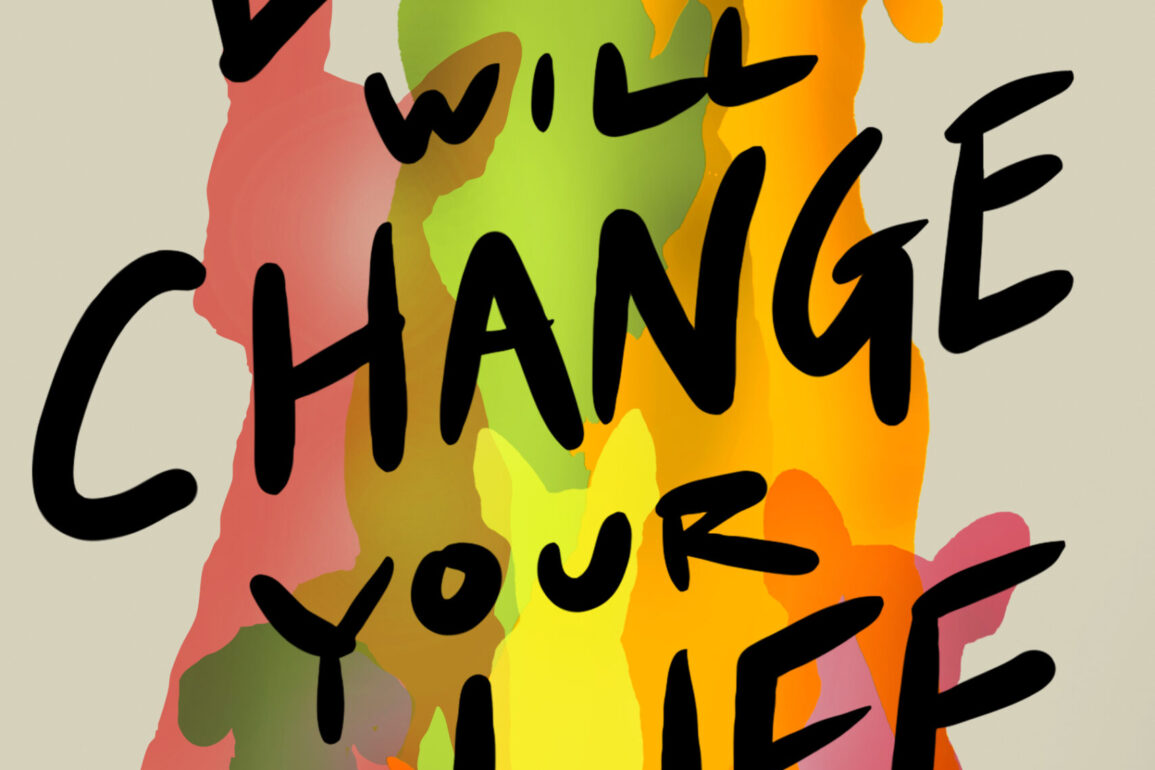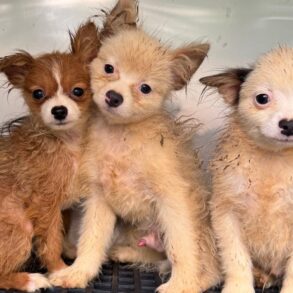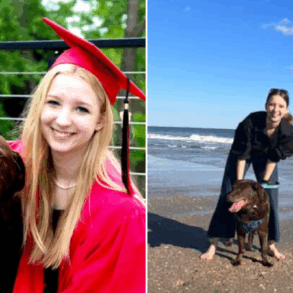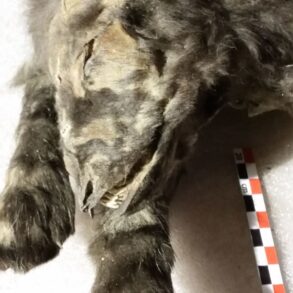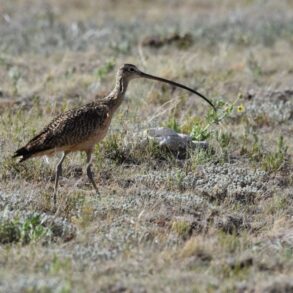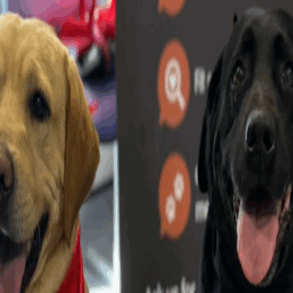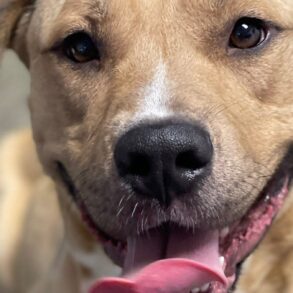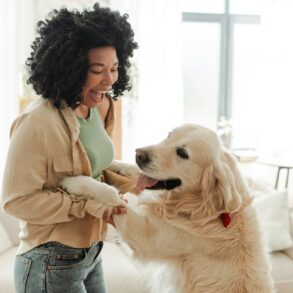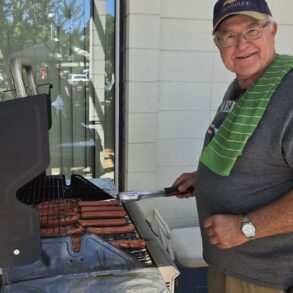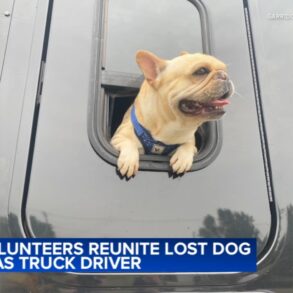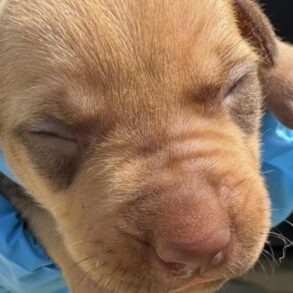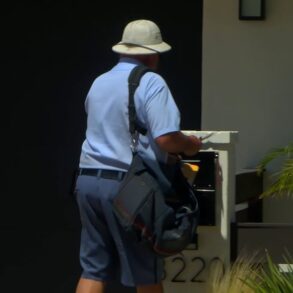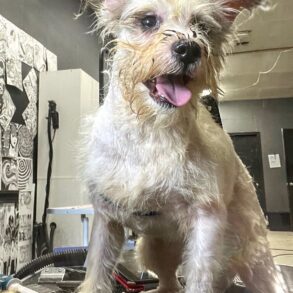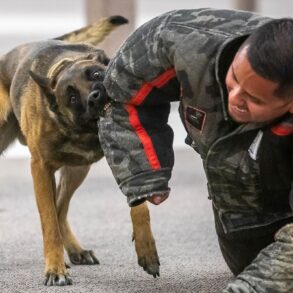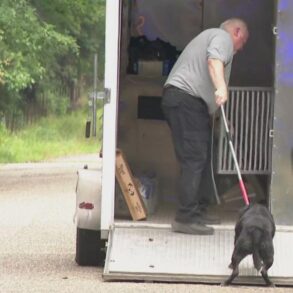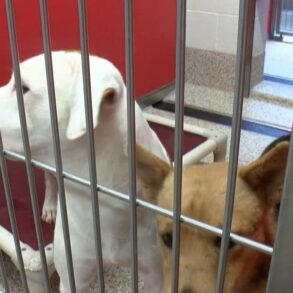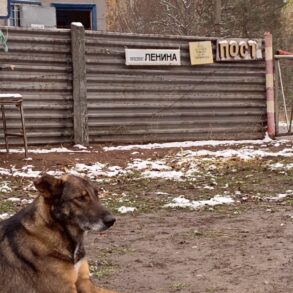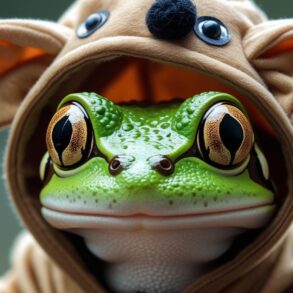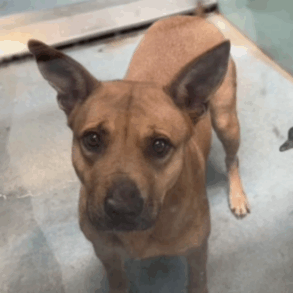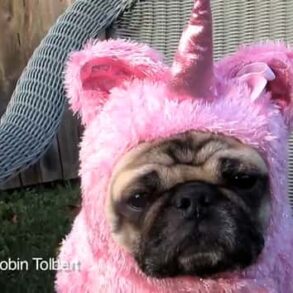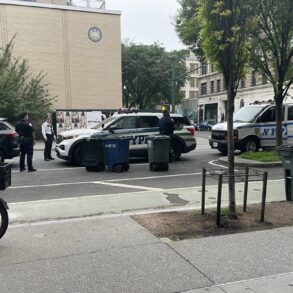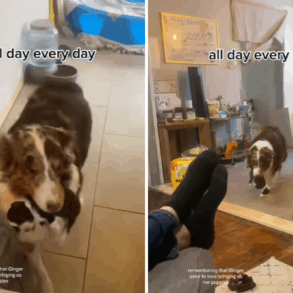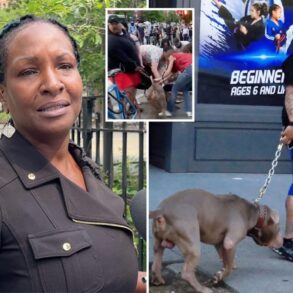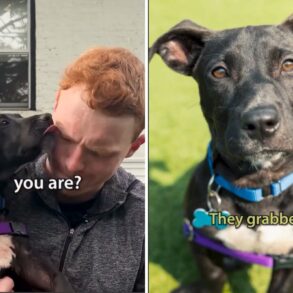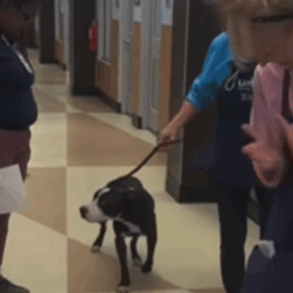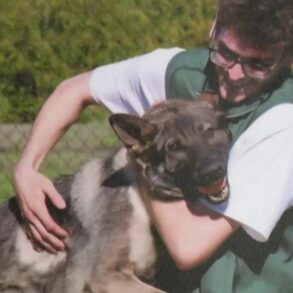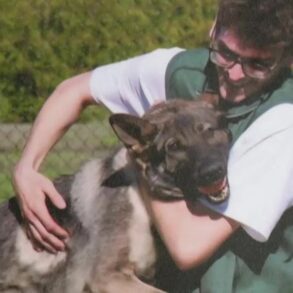If you’re on social media, you might know Elias Weiss Friedman as “The Dogist.” He is a photographer, videographer and content creator.
At the moment, he has over 10 million followers across his social media platforms. He recently released his book, “This Dog Will Change Your Life.” The book weaves together many stories about the dogs that he has met throughout his life.
When Weiss Friedman recently spoke with WPR’s “BETA,” he reflected on his own childhood dog, talked about approaching dogs and their people on the street and wondered what the world might be like if dogs were in charge.
Stay connected to Wisconsin news — your way
Get trustworthy reporting and unique local stories from WPR delivered directly to your inbox.
He also has an upcoming appearance near Wisconsin. Weiss Friedman will be appearing at Madison Street Books in Chicago on Monday.
The following interview has been edited for clarity and brevity.
Elias Weiss Friedman: The story from my childhood that my parents and my grandparents would often tell me was I was at my grandma’s house when I was a toddler. She went inside to get a jacket, and I was outside with a dog. When she came back outside, I was gone and so was the dog. Everyone feared the worst, and the police were called. After about 20 minutes, a landscaper sees me on the side of the road with Oreo the dog, and Oreo was keeping me out of traffic. So I guess you could say that she saved my life.
Then, later on in my life, more metaphorically or symbolically, I was 25 years old, working in New York City, and I was part of a layoff of 40 people. And very soon thereafter, I started “The Dogist,” and that saved my professional life.
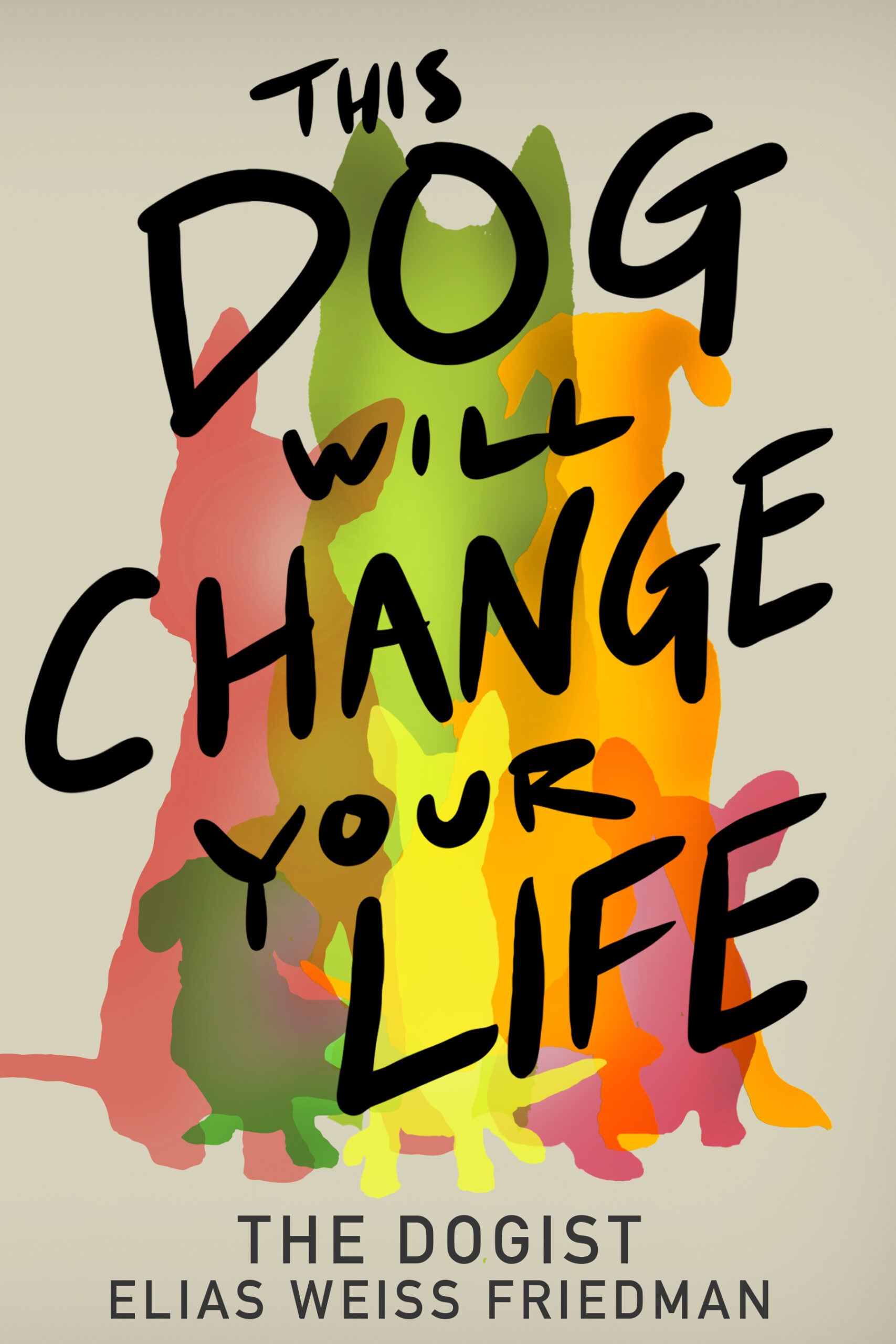
Doug Gordon: And your photos are great. How many people do you have following you on social media?
EWF: Collectively, probably 10 million with TikTok, Instagram and Facebook. So that’s a lot of people. I think in terms of, like, how many stadiums is that? (LAUGHS) A few!
Doug Gordon: You’re recognized on the street pretty regularly these days. But how did people react in the beginning to you approaching them to photograph their dogs, interview them and then post your work to Instagram?
EWF: In the early days back in 2013, it was a little bit strange. I think people were like, “What’s this for?” And they were always curious about like, “You make money doing this? Like, this is your livelihood?” And I’d say, “Well, kind of, Yeah!”
Very few people are comfortable talking about themselves candidly. But when it comes to their dog, their dogs don’t have an ego about themselves or vanity. So you can take any picture you want of them, you can share the wildest story about them, and it’s liberating as a human to tell a story and not hold anything back. And to laugh about something that is so much a part of our lives.
And on the internet, so much of what we see is divisive or makes us feel inadequate or jealous. I wanted to create something that was a light in the world, a source of positivity, an antidote to that part of the internet. That’s what dogs do for us. They’re a source of joy like nothing else.
DG: Your dog, Elsa, gets namedropped pretty often on social media. Can you tell us a bit about her?
EWF: Elsa is my pandemic foster fail. During the pandemic, I couldn’t approach people on the street as readily as you could before. And so I reached out to some foster groups in the area, and one of them said, “We have a transport from Texas coming up.” And they sent me a picture of a white, skinny husky and they said, “How about Elsa?”
When Elsa showed up, very quickly, it was like, “Uh oh, she’s amazing!” And since then, she’s activated another chamber of my heart, which is something another person has told me before. I ended up rekindling my relationship with my now-wife, and Elsa was a catalyst for that, undoubtedly.
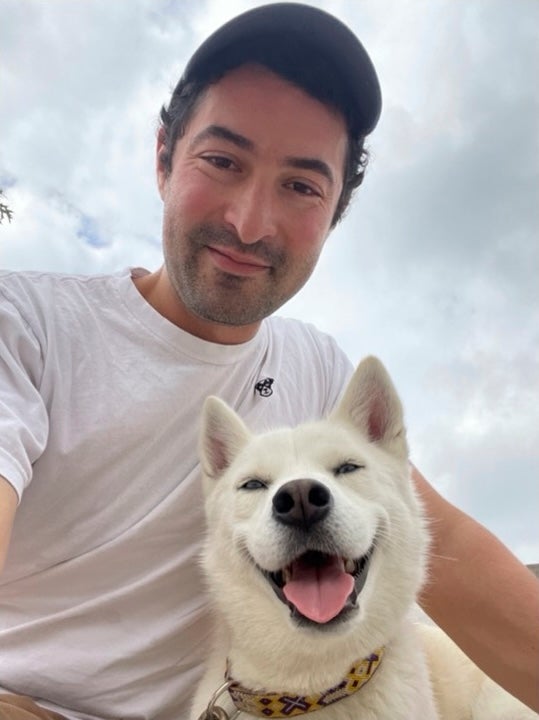
DG: You graduated high school in 2006 and then you headed off to attend college at Boston University. During your second semester, you received some bad news from your father. Could you share that with us?
EWF: Ruby was my childhood dog, so I had never grasped the concept of death fully. So Ruby was going to live forever, probably, I don’t know. But then my dad said, “We found Ruby. Ruby died.” And I didn’t know how to grieve that. I felt like I wasn’t there for her. I think since then, there was always a sort of unfinished business with my dog. I never got to close that chapter.
So, when I was let go from my job at 25, I think in my heart, I was picking up that chapter.
I wanted to be around dogs again, and I feel like that’s what Ruby would have wanted me to do.
DG: Thank you for sharing that, Elias. I know that’s probably a tough memory to revive.
EWF: Yeah, dogs dying. It’s always the hardest thing. It’s important to honor them.
DG: Definitely. You have this great description about how dogs live their lives fully in the moment. Can you tell us about that?
EWF: Dogs live in the present, right? They’re not as concerned with what happened yesterday. They’re not embarrassed. They’re not as concerned about the future and what people will think of them. So they have this beautiful freedom of enjoying the “now.” Just watching them on a walk, for example, where they’re just enjoying themselves. They’re smelling this, they’re meeting other dogs. They’re not hesitating to do what they want to do.
DG: You have said that dogs not only changed your life, but also changed what you thought of as life. I find that statement very interesting. Can you explain that?
EWF: I think a lot of people grow up thinking that they have to pick one of the things on the list in kindergarten. Should I be a doctor? Should I be a lawyer? So I’ve always had this childlike curiosity, like, what if I did something fun? As a shy kid, dogs were always there for me. And they’re great photographic subjects because they’re always expressing their true emotion, unlike people. People want to seem a certain way; dogs are a certain way.
But, whether I intended it or not, by doing a thing I love, I think I’ve made the world a better place. A lot of times it feels like I’m just pushing a button and sending these posts out into the ether. But every day, someone emails me saying how profound an effect I’ve had on their life over time. It’s a full spectrum of things that people go through, and dogs help alleviate all of it.
DG: How do you think the world would be different if dogs were in charge instead of people?
EWF: That’s a good question. I think they would be less judgmental of one another. I don’t think it would be a perfect society, but there would be more love in it, and it would be more fun. I think dogs have an inherent empathy, and therefore the world would be more empathetic towards one another, I hope (LAUGHS).
This post was originally published on this site be sure to check out more of their content.



